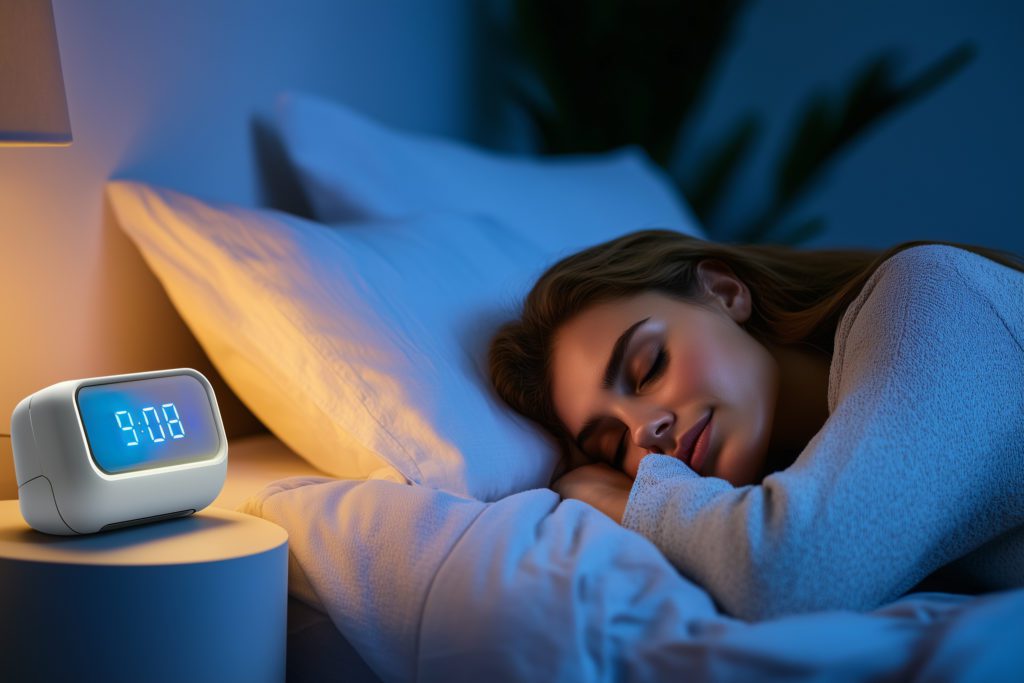
What sleep stage is the most important?
Learn the different stages of sleep, why they matter, and whether one is more important than the others

We all know that sleep is important, but have you ever wondered what’s really happening when you’re off in dreamland? Sure, you close your eyes, and the next thing you know, it’s morning. But behind the scenes, your body and brain are going through some important changes.
Sleep isn’t just a passive activity; it’s a dynamic process with several stages, each playing a crucial role in keeping you healthy, happy, and ready to tackle the day.
But here’s the million-dollar question: What sleep stage is the most important? Is it the time when you’re in deep, restorative sleep, or is it when you’re having those vivid dreams during REM (Rapid Eye Movement) sleep? Or maybe it’s something else entirely?
Stick around, and we’ll discuss the different stages of sleep, why they matter, and whether one is more important than the others.
What You Need to Know About Sleep Stages?
Before we start crowning the "most important" sleep stage, let's first take a quick tour through the stages of sleep.
Non-REM Stage 1
NREM 1 is the lightest stage of sleep, where you’re just drifting off. It’s that weird place where you might still hear things around you but are too far gone to care. Your muscles start to relax, and you might even experience that sudden jerk awake as if you’re falling.
Non-REM Stage 2
Next up, Stage 2! Your body temperature drops, your heart rate slows, and your brain waves become slower with occasional bursts of activity called sleep spindles. You’re more relaxed now, and your body is preparing to enter deeper sleep. Stage 2 is where you’ll spend almost half of your sleep time.
Non-REM Stage 3
Stage 3 is also known as deep sleep or slow-wave sleep. This is the main event where your body does most of its repair work. During deep sleep, your body repairs tissues builds bone and muscle and strengthens your immune system. This stage leaves you feeling refreshed and ready to conquer the day.
REM (Rapid Eye Movement) Sleep
REM sleep is where your most vivid dreams occur. Your brain activity during this stage is similar to when you’re awake, and it’s crucial for cognitive functions like memory consolidation, learning, and emotional regulation.
What Sleep Stage Is the Most Important?
If you’re wondering what sleep stage is the most important, you’re not alone. This is a hot topic among sleep scientists, and the answer might surprise you—or maybe it won’t because, let’s be honest, sleep is full of surprises!
Let’s start with deep sleep. There’s a strong argument to be made for deep sleep as the MVP of your sleep cycle. In this stage, your body does most of its heavy lifting—repairing tissues, boosting the immune system, and even helping with growth and development.
If you’re not getting enough deep sleep, you’re likely to feel it in your body. You might wake up feeling like you didn’t sleep at all, even if you spent a good amount of time in bed. It’s like going to the gym and lifting weights without ever getting to the point where you actually build muscle—frustrating and not very productive.
But then, there’s REM sleep. REM sleep is where your brain kicks into high gear, processing everything you’ve learned and experienced during the day. It’s also where most of your dreaming happens, which might not seem important until you realize how crucial dreams are for emotional health and cognitive function.
So, it’s not really about which stage is the most important, but rather how all these stages work together. Sleep is a cycle, and each stage leads into the next, creating a rhythm that’s essential for your overall well-being. Without enough Stage 2 sleep, you might not get the deep sleep you need. Without deep sleep, your REM sleep might be disrupted. It’s all connected. Take away one part, and the whole performance suffers.
So, if you really want to know what sleep stage is the most important, the answer might just be all of them.
How to Optimize Your Sleep for Each Stage?
Now that we’ve established that all sleep stages are essential, you’re probably wondering how you can make sure you’re hitting all the right notes each night. The good news is that there are plenty of ways to optimize your sleep to get enough of each stage.
Sleep Environment
First off, let’s talk about creating the perfect sleep environment. Your bedroom should be a sleep sanctuary—cool, dark, and quiet. Blackout curtains, a comfortable mattress, and a good pillow can make a world of difference.
Pre-Sleep Routine
But it’s not just about the physical environment. Your pre-sleep routine plays a huge role in how well you transition through the sleep stages. Try to wind down before bed with calming activities like reading a book (but not on a bright screen!), taking a warm bath, or doing some light stretches.
Avoiding heavy meals, caffeine, and electronics close to bedtime can help signal to your body that it’s time to start slowing down.
The Takeaway Message
If there’s one thing to take away from this discussion, it’s that no single stage can claim the crown. Each stage of sleep has a unique role to play in the overall performance. From light sleep easing you into rest to deep sleep restoring your body and REM sleep sharpening your mind, they’re all essential.
Instead of stressing over which stage you need more of, focus on getting good-quality sleep overall. Create a sleep-friendly environment, maintain a consistent sleep schedule, and use Pillow to keep an eye on how well you’re hitting all those sleep notes.
Pillow helps you track your sleep patterns and gives you insights into how much time you’re spending in each stage. By understanding your sleep data, you can make adjustments to your routine and environment to improve your sleep quality.

Written by
Dr Aqsa
As a Medical Doctor, Dr Aqsa, uses her knowledge to craft complex medical information that is understandable to the general public. For years, she has tried to improve health literacy and empower readers with valuable health knowledge through her articles, blog posts, and educational materials.
Download Pillow
Get help
Press & News
Legal
Connect
X (Twitter)
Company
Copyright © Neybox Digital Ltd.



